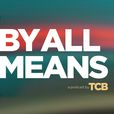
Summary: Having reached her ultimate career goal before age 30—New York Times best-selling author; staff writer for ESPN—Maria Burns Ortiz turned her attention to a new challenge: promoting equitable education. She’s the co-founder of 7 Generation Games, a mission-based ed-tech startup focused on closing the math gap for students from Native American, Latino, and underserved and rural communities. She started the company with her mom, Anna Maria De Mars, World Judo Champion turned educational psychology professor. Since her days as an eighth grade math teacher, De Mars wanted to make video games to teach kids math, but at the time, the technology didn’t exist. With Burns Ortiz’s career at a crossroads, her mom convinced her to take the money she would have spent on an MBA and invest it in starting a business. Eight years later (five, full-time), 7 Generation Games counts more than 40,000 active uses in schools and homes across the country. The company recently received $1 million in grant funding from the U.S. Department of Agriculture for Growing Math, a new learning platform aimed at helping meet the needs of students and educators in Arizona, Minnesota, New Mexico, North Dakota, Oregon, and South Dakota. “There’s a disconnect between what software companies think teachers need, and what they actually use,” says Burns Ortiz, who runs the company from Minneapolis with a team of 11 spread around the country. Although 7 Generation was focused on rural and underserved urban communities pre-pandemic, distance learning has heightened the awareness that “the digital divide is a lot greater than we thought.” When schools closed in early 2020 due to Covid-19, 7 Generation lifted its paywall to get software to teachers. But in some of the communities it serves, nearly half the students don’t have Internet at home. “No one can learn from software they can’t use,” Burns Ortiz says. In the past year, 7 Generation more than doubled its offline game usage, from 40 to 85 percent of its collection. “Making something that seems high tech run on something low tech is really hard,” Burns Ortiz says. “Maybe it’s not the coolest, 3D virtual world, but it runs on a phone.” Despite early difficulties convincing investors, Burns Ortiz and her mom felt strongly about setting up 7 Generation as a for-profit company. “Social impact is not a charity,” Burns Ortiz says. “You can make a positive societal impact and also have that be a profitable enterprise. When it’s non-profit, often that doesn’t encourage people to go in and innovate on solutions.” Her goal now? “I want 7 Generation to be as ubiquitous in the classroom as text books.” After our conversation with Burns Ortiz, we go back to the classroom with the University of St. Thomas Opus College of Business, where Kevin Henderson is a professor of management with a focus on universal design for learning. “We want to give everyone in the classroom an equal opportunity to succeed.” That starts with material that feels relevant to a wide variety of cultures and communities. “It’s so important for students to see themselves represented in curriculum.”
